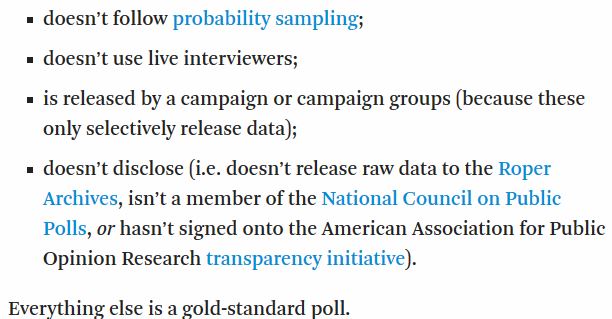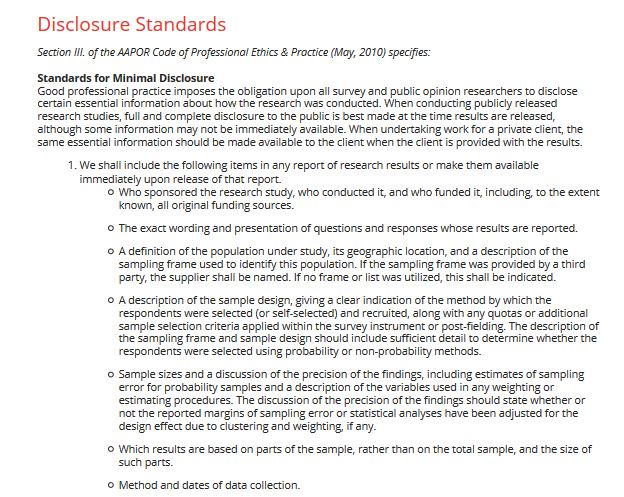I keep calling the recent “poll” by Massachusetts Fiscal Alliance a fraud and it sure would be embarrassing if I’m proven wrong. Mass Fiscal can do that and promote two of its cherished principles – transparency and accountability – at the same time.
I’ve enumerated the problems with the “poll” here, here, here, and here. A big shortcoming is that the poll is a “non-traditional poll” and MFA hasn’t disclosed much information about it. According to Harry Enten of the respected fivethirtyeight.com non-traditional polls share certain characteristics which differ from traditional (and more trustworthy) polls. The non-traditional poll:

We don’t know if MFA followed probability sampling. They didn’t use live interviewers. It was released by a campaign group (roughly speaking; MFA is a 501(c)(4) organization, a way to masquerade as a social welfare group). MFA has not disclosed information about its poll.
The American Association for Public Opinion Research is the leading professional group in the field and they have published Disclosure Standards for the ethical conduct of polls. You can read all five of them here but let’s just stay with the first standard:

Here’s some information I would find especially interesting:
1. Identify the pollster and whether it has signed onto the AAPOR’s transparency initiative.
2. Who funded the poll – not the MFA, but the “original funding source.” In other words, who funds MFA?
3. Release an accounting of the pollster’s methodology.
Standard 1 covers matters to be immediately disclosed. There are additional disclosures required within thirty days. MFA should make a timely disclosure of all of them.
Transparency, accountability, and prove the prof wrong – it’s a Trifecta! Let’s see all the information required by the AAPOR’s ethical standards for disclosure.

